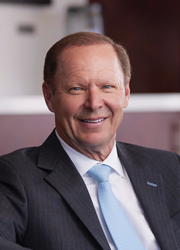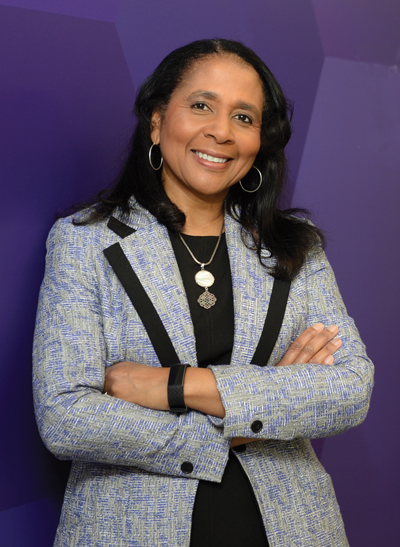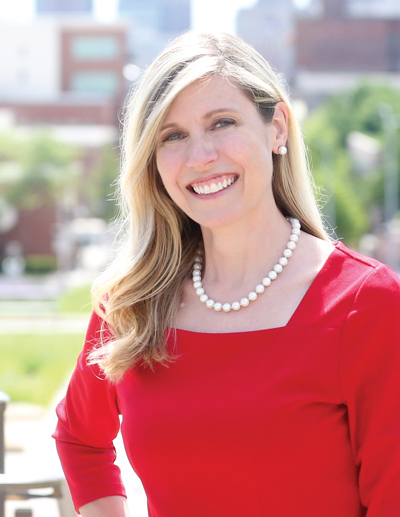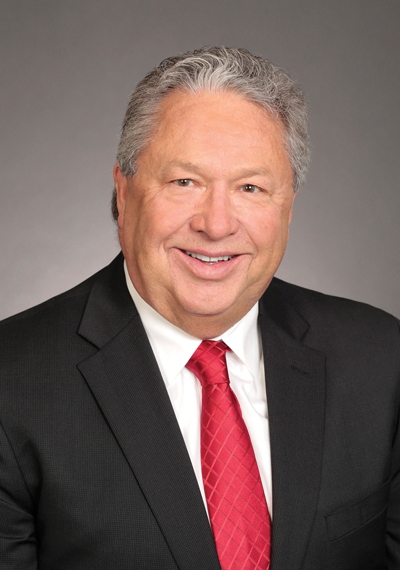On Leadership: Evolve or Die: Leading through continued change and uncertainty in 2023

“Evolve or die,” say leaders who responded to PwC’s recent 2023 CEO Survey. In that study, 40% of leaders indicated that change is needed in order for their organizations to be financially viable in 10 years. But how can leaders be thinking about positioning their organizations for the future while trying to manage so much current change and uncertainty?
The pace of change that leaders have been experiencing for the last few years is not showing any sign of slowing down. CEOs will face countless challenges in the year ahead, including continued geopolitical uncertainty, accelerating cyberattacks, workforce shortages and new ways of approaching the workplace. These challenges will take place in a macroeconomic environment that continues to be volatile.
“This year promises to be one full of opportunities and challenges for CEOs, but those who lean forward successfully will continue to position their organizations for a bright future,” says a recent Fortune article on how CEOs can manage continued uncertainty in 2023.
Leading your organization through current change while positioning yourself for future transformation can be difficult. Thinking both short- and long-term requires a combination of leadership skills – strategic thinking, communication, people leadership and the ability to execute.
I asked leaders what they think are some of the most important leadership skills needed to navigate through continued change and uncertainty in 2023 while positioning their organizations for the future.

Don Coffin, CEO and president, Bankers Trust: In business, change is guaranteed. As a leader who has worked through significant uncertainties, whether economic, social or otherwise, I’ve always gravitated toward focus, transparency and adaptability. Steady focus helps keep out noise and enables you to make decisions based on what’s best for your business. As the largest independent bank in Iowa, we’re fortunate we can concentrate on long-term goals, rather than becoming preoccupied with short-term shareholder returns. And, once decisions are made, sharing the reasoning and impact on your business and employees helps gain buy-in and trust from your team members.

Angela L. Walker Franklin, president and CEO, Des Moines University: We have an incredible opportunity right now to transform health sciences education to teach the health professionals of tomorrow. As Des Moines University navigates the transition to our newly built campus in West Des Moines, it is important to consistently remind everyone of this lofty goal. It’s exciting to be part of something big and innovative! This is a collective vision, and everyone at DMU has a role in realizing the dream.

Tiffany Tauscheck, COO, Greater Des Moines Partnership; president, Downtown DSM Inc.: Leaders benefit from having a relentless conviction to making a positive impact. Our community is strong at creating a strategic vision for the future and carrying out the vision with purposeful, intentional planning. We will continue to shape the future together through careful listening, a commitment to the process, strategic adaptability and collaboration between public, private and community partners.

Rick Tollakson, president and CEO, Hubbell Realty Co.: I believe leaders should reflect on past downturns, recognize that each downturn was different in its own regard and try to understand the differences to best prepare for future headwinds. Patience is a key leadership trait that I try to embody, and while it’s not always easy, I do my best to respond to the market changes and relay continued optimism to our team. I find it best practice to develop a Plan A, B and C, then communicate those plans to your team as enthusiastically as possible.
Advice on leading through continued change and uncertainty
Be true to your mission. In periods of disruption, it is more important than ever to be clear about your vision, mission and values. Tauscheck says, “Through times of change, remain committed to your North Star and stay true to your mission.” She adds, “You may need to be adaptable and flexible in the ‘how,’ but don’t lose sight of the ‘why.’”
Be prepared. “Nothing lasts forever, but preparation is key,” says Coffin, who advises leaders to plan ahead for various situations you know could significantly affect your organization. He points out that business continuity planning, revenue diversification and succession planning are all ways leaders can proactively prepare for unexpected events.
Say yes to your community. Your business is a part of a larger ecosystem, so consider how you can support your community and region. “There are many exciting initiatives throughout our region,” says Tauscheck. “Find a way to say ‘yes’ to help advance projects and initiatives you believe in.” She emphasizes that it takes all of us contributing to help our community continue to grow and flourish.
Control what you can control. “When things are uncertain, focus on the areas you can impact,” says Coffin. He points out that while leaders cannot control the markets, we can strategically look at how our business can handle its cash management, loans and investments in various economic scenarios. He notes, “You can control the service or experience you provide customers and the workplace culture you create for your team.”
Communicate: Tollakson emphasizes the importance of communication, saying, “As a leader, I believe you increase the communication surrounding your core vision and how you believe your company will handle any economic challenges ahead.” Franklin echoes his words, saying, “Share more! Be transparent! Communicate often!”
Focus your efforts: During economic downturns, Tollackson says his team focuses on four tactical areas to make an impact on their business lines: customer service, process improvement, marketing and training. He notes: “I believe we need to prepare for the inevitable market upturn, and the enhanced focus on these four areas gives our team the tools and skills to successfully make it through.”
Be mindful of personal transitions. Franklin says that as organizations evolve and change, personal transitions are also occurring, and good leaders need to recognize that personal and work environments often collide. Now, as there is more flexibility in work environments, Franklin says leaders must be open to exploring the impact of family or health challenges of all kinds on the team. She says, “As the organization transitions to its future state, it is essential to be mindful of individual transitions. Being respectful of differences is important, too.”
Follow the golden rule. During periods of change, basic human kindness can go a long way. Is the golden rule a part of business strategy? Many leaders are increasingly realizing that this is part of building a supportive culture. “First, always treat others the way you want to be treated,” says Franklin, adding: “Be kind. Start from a place of genuine concern and respect for others.”
Climb higher: Even as you navigate changes today, keep your eyes on the future. “In the words of recent Greater Des Moines Partnership Annual Dinner speaker Erik Weihenmayer … be a climber,” says Tauscheck. “Keep reaching for new heights. What’s within you is stronger than the barriers you face.

Suzanna de Baca
Suzanna de Baca is a columnist for Business Record, CEO of Story Board Advisors and former CEO of BPC. Story Board Advisors provides strategic guidance and coaching for CEOs, boards of directors and family businesses. You can reach Suzanna at sdebaca@storyboardadvisors.com and follow her writing on leadership at: https://suzannadebacacoach.substack.com.





